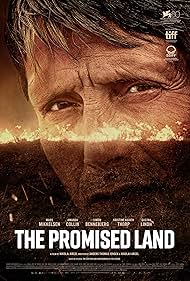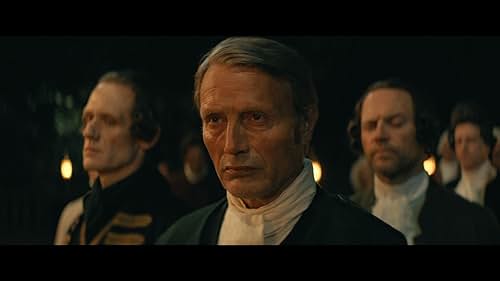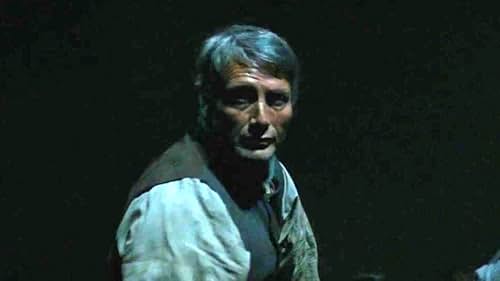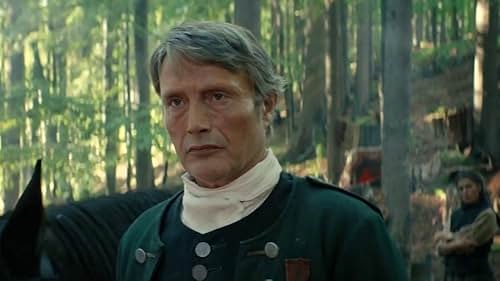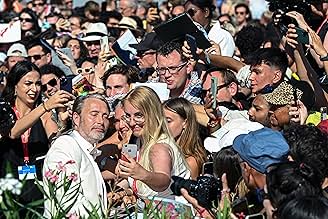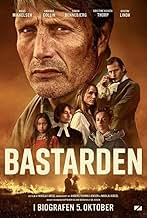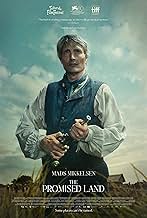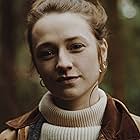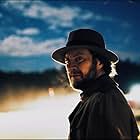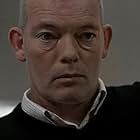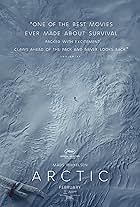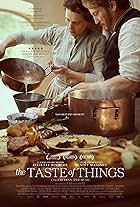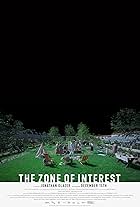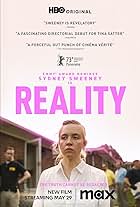The story of Danish soldier and explorer Ludvig Kahlen, who explored and cultivated Denmark's wild Jutland, which now comprises the vast majority of the country, in the mid-18th century.The story of Danish soldier and explorer Ludvig Kahlen, who explored and cultivated Denmark's wild Jutland, which now comprises the vast majority of the country, in the mid-18th century.The story of Danish soldier and explorer Ludvig Kahlen, who explored and cultivated Denmark's wild Jutland, which now comprises the vast majority of the country, in the mid-18th century.
- Awards
- 22 wins & 16 nominations
Melina Hagberg
- Anmai Mus
- (as Hagberg Melina)
Laura Bilgrau Eskild-Jensen
- Anmai Mus (15)
- (as Laura Bilgrau)
- Director
- Writers
- All cast & crew
- Production, box office & more at IMDbPro
Storyline
Did you know
- TriviaOfficial submission of Denmark for the 'Best International Feature Film' category of the 96th Academy Awards in 2024.
- Quotes
Ludvig von Kahlen: It is the king's land. I work for the king.
Featured review
It is 1755, and Danish Captain Ludvig Kahlen has just left the army. He approaches the Royal Danish Court with a proposition: he will attempt to build a settlement on the barren Jutland moors in exchange for a noble title. It is a task considered impossible, and though his deal is accepted, the Court thinks nothing will ever come of it. Out on the moors, Kahlen battles the environment, as well as bandits and the machinations of the sadistic local magistrate Frederik Schinkel, in an attempt to realize his dreams.
Directed by Nikolaj Arcel and based on a novel by Ida Jessen- which was, in turn, very loosely inspired by real life characters- 'The Promised Land' is an engrossing, engaging film both powerful and poignant. Arcel's screenplay- written alongside frequent collaborator Anders Thomas Jensen- tells a fascinating tale that offers insight into Danish history, while also functioning as a character study and a compelling drama to boot.
It is a movie that works on many levels, balancing drama with comedy and violence with silence. The narrative- although lumbered with an unnecessarily protracted ending- is strongly written, subtly exploring themes like the cost of ambition and the importance of family. The film presents Kahlen as a complex man who can't see the forest for the trees, so to speak. Over the course of the picture, he undergoes a change of character, realising that there are other aspects to his life he should dedicate his time to, other than his pursuit of dominance over the inhospitable moorland.
Kahlen is reminiscent of other singularly focused cinematic creations, such as the titular characters in Werner Herzog's 'Fitzcarraldo' and Sam Peckinpah's 'The Ballad of Cable Hogue.' Like those two resolute men, he strives to realize his dream in the face of terrible opposition. His perseverance, his assurance that the impossible can be done, makes him a compelling character, while his stoic nature makes him both enigmatic and intriguing.
Toiling through the seasons, tearing up the tough earth of the moors, Kahlen struggles to make any headway, even with the help of a couple, Ann Barbara and Johannes, as well as Anmai Mus, a Romani girl he reluctantly takes into his care. Meanwhile, the villainous Shinkel, who has his eye on the moorland, turns from an irritant into an obstacle Kahlen cannot get beyond. All these characters are well-drawn and believable, with their own arcs and backstories. Although the exploration of Kahlen's personality and ambition is the core of the story, Arcel and Jensen have created rich secondary characters for him to interact with; making the film utterly gripping.
It is a visually evocative affair, boasting atmospheric cinematography from Rasmus Videbæk. By using an aspect ratio of 1.66:1, Videbæk gives the film a wide, epic look, making the most of the rugged Danish landscape; compounding the harsh isolation of the Jutland moors. His use of close-ups heightens the drama of proceedings, while his utilisation of tracking shots- notably during a nighttime raid on a band of thugs- adds tension and suspense.
Moreover, Jette Lehmann's production design is detailed and evocative, creating a period-accurate setting, while Kicki Ilander's costume design contributes to the narrative and its characters astutely. Her juxtaposition of the rich fabrics Shinkel parades around in, compared to Kahlen's simple outfits, accentuates the cultural, societal gap between the men. Additionally, Dan Romer's muted score is stirring, never dominating scenes; complementing them instead. Although Arcel and editor Olivier Bugge Couttélet let proceedings go on a tad too long- there is a natural end point that is followed by an unnecessary extra 25 minutes, an epilogue of sorts- the film has a steady pace as deliberate as its central character.
Mads Mikkelsen stars as Kahlen, opposite Amanda Collin as Ann Barbara, Melina Hagberg as Anmai Mus and Simon Bennebjerg as Shinkel. Mikkelsen demonstrates his incredible talent for saying volumes through the smallest expression or gesture, without the need for words. A nuanced, charismatic performer, he is terrific; his subtle, multifaceted performance again lends credence to the notion that he is one of, if not the best actors around today.
Collin does similarly sterling work as Ann Barbara, delivering an understated and powerful performance full of depth and wit. She shares a fine chemistry with Mikkelsen, while Hagberg- in her first role- is wonderful. Feisty and funny, she has a strong screen presence, working brilliantly with her co-stars- especially Mikkelsen. They share a few scenes full of emotional power; and she impresses greatly with her natural, unostentatious performance.
Bennebjerg creates in Shinkel a villain for the ages, a sadistic cad full of pomp and vanity. Although the character is fairly cliched, Bennebjerg plays him so well one forgets this. Slimy, slick and sinisterly funny; he cannot be faulted. Additionally, Thomas W. Gabrielsson and Jacob Lohmann are both brilliant as Shinkel's right hand man Bondo and Trappaud, an associate of Kahlen's. Furthermore, Kristine Kujath Thorp is commendable in the role of Edel Helene, a noblewoman betrothed to Shinkel who wants to escape his vile clutches.
In conclusion, Nikolaj Arcel's 'The Promised Land' is an engaging epic, a character study and a moving drama all in one. With a strong screenplay examining interesting themes, witty, minimalist dialogue and well-drawn characters, the narrative consistently engages. The cinematography and production design are striking, while the score is subtly powerful. Boasting strong performances from all in the cast- led by the incomparable Mads Mikkelsen- 'The Promised Land' is a fascinating tale about a conquest of the useless that one wouldn't want to miss.
Directed by Nikolaj Arcel and based on a novel by Ida Jessen- which was, in turn, very loosely inspired by real life characters- 'The Promised Land' is an engrossing, engaging film both powerful and poignant. Arcel's screenplay- written alongside frequent collaborator Anders Thomas Jensen- tells a fascinating tale that offers insight into Danish history, while also functioning as a character study and a compelling drama to boot.
It is a movie that works on many levels, balancing drama with comedy and violence with silence. The narrative- although lumbered with an unnecessarily protracted ending- is strongly written, subtly exploring themes like the cost of ambition and the importance of family. The film presents Kahlen as a complex man who can't see the forest for the trees, so to speak. Over the course of the picture, he undergoes a change of character, realising that there are other aspects to his life he should dedicate his time to, other than his pursuit of dominance over the inhospitable moorland.
Kahlen is reminiscent of other singularly focused cinematic creations, such as the titular characters in Werner Herzog's 'Fitzcarraldo' and Sam Peckinpah's 'The Ballad of Cable Hogue.' Like those two resolute men, he strives to realize his dream in the face of terrible opposition. His perseverance, his assurance that the impossible can be done, makes him a compelling character, while his stoic nature makes him both enigmatic and intriguing.
Toiling through the seasons, tearing up the tough earth of the moors, Kahlen struggles to make any headway, even with the help of a couple, Ann Barbara and Johannes, as well as Anmai Mus, a Romani girl he reluctantly takes into his care. Meanwhile, the villainous Shinkel, who has his eye on the moorland, turns from an irritant into an obstacle Kahlen cannot get beyond. All these characters are well-drawn and believable, with their own arcs and backstories. Although the exploration of Kahlen's personality and ambition is the core of the story, Arcel and Jensen have created rich secondary characters for him to interact with; making the film utterly gripping.
It is a visually evocative affair, boasting atmospheric cinematography from Rasmus Videbæk. By using an aspect ratio of 1.66:1, Videbæk gives the film a wide, epic look, making the most of the rugged Danish landscape; compounding the harsh isolation of the Jutland moors. His use of close-ups heightens the drama of proceedings, while his utilisation of tracking shots- notably during a nighttime raid on a band of thugs- adds tension and suspense.
Moreover, Jette Lehmann's production design is detailed and evocative, creating a period-accurate setting, while Kicki Ilander's costume design contributes to the narrative and its characters astutely. Her juxtaposition of the rich fabrics Shinkel parades around in, compared to Kahlen's simple outfits, accentuates the cultural, societal gap between the men. Additionally, Dan Romer's muted score is stirring, never dominating scenes; complementing them instead. Although Arcel and editor Olivier Bugge Couttélet let proceedings go on a tad too long- there is a natural end point that is followed by an unnecessary extra 25 minutes, an epilogue of sorts- the film has a steady pace as deliberate as its central character.
Mads Mikkelsen stars as Kahlen, opposite Amanda Collin as Ann Barbara, Melina Hagberg as Anmai Mus and Simon Bennebjerg as Shinkel. Mikkelsen demonstrates his incredible talent for saying volumes through the smallest expression or gesture, without the need for words. A nuanced, charismatic performer, he is terrific; his subtle, multifaceted performance again lends credence to the notion that he is one of, if not the best actors around today.
Collin does similarly sterling work as Ann Barbara, delivering an understated and powerful performance full of depth and wit. She shares a fine chemistry with Mikkelsen, while Hagberg- in her first role- is wonderful. Feisty and funny, she has a strong screen presence, working brilliantly with her co-stars- especially Mikkelsen. They share a few scenes full of emotional power; and she impresses greatly with her natural, unostentatious performance.
Bennebjerg creates in Shinkel a villain for the ages, a sadistic cad full of pomp and vanity. Although the character is fairly cliched, Bennebjerg plays him so well one forgets this. Slimy, slick and sinisterly funny; he cannot be faulted. Additionally, Thomas W. Gabrielsson and Jacob Lohmann are both brilliant as Shinkel's right hand man Bondo and Trappaud, an associate of Kahlen's. Furthermore, Kristine Kujath Thorp is commendable in the role of Edel Helene, a noblewoman betrothed to Shinkel who wants to escape his vile clutches.
In conclusion, Nikolaj Arcel's 'The Promised Land' is an engaging epic, a character study and a moving drama all in one. With a strong screenplay examining interesting themes, witty, minimalist dialogue and well-drawn characters, the narrative consistently engages. The cinematography and production design are striking, while the score is subtly powerful. Boasting strong performances from all in the cast- led by the incomparable Mads Mikkelsen- 'The Promised Land' is a fascinating tale about a conquest of the useless that one wouldn't want to miss.
- reelreviewsandrecommendations
- Feb 19, 2024
- Permalink
- How long is The Promised Land?Powered by Alexa
Details
- Release date
- Countries of origin
- Languages
- Also known as
- The Bastard
- Filming locations
- Production companies
- See more company credits at IMDbPro
Box office
- Budget
- $8,500,000 (estimated)
- Gross US & Canada
- $257,749
- Opening weekend US & Canada
- $121,505
- Feb 4, 2024
- Gross worldwide
- $2,246,680
- Runtime2 hours 7 minutes
- Color
- Sound mix
- Aspect ratio
- 2.39:1
Contribute to this page
Suggest an edit or add missing content

